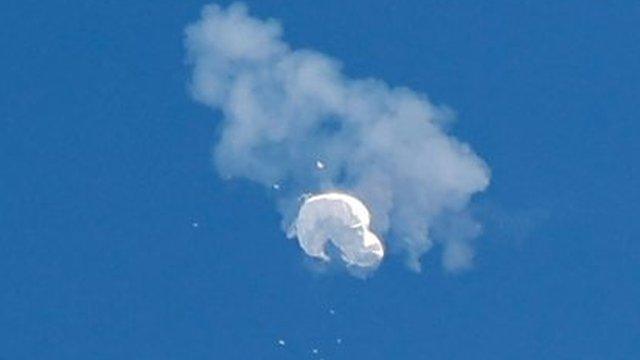Antony Blinken tackles a tough China visit. Will it help?
- Published
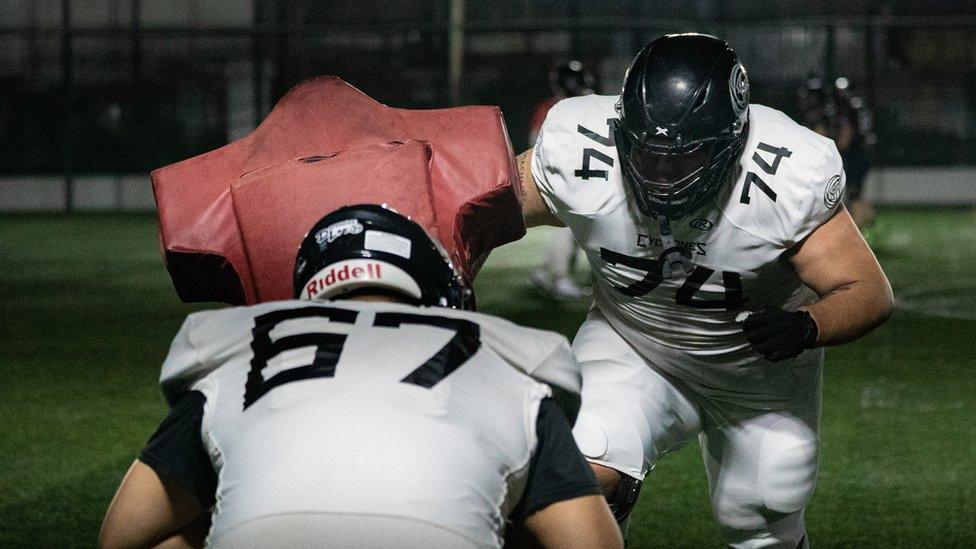
The Beijing Cyclones is among several American football clubs that have sprung up in China in recent years
"Three, two, one - hut!" shouts quarterback Mu Yang, as he throws the ball across the field.
His Beijing Cyclones teammate Henry Mu sprints to the corner for the catch, his studs thudding off the AstroTurf as he jumps for the ball.
"I was so surprised to find American football here," says Henry as he catches his breath. "It's very tough, physically and mentally, you must defeat your fear."
Here, men and women play together in a team sport that you'd associate more with Baltimore than Beijing.
For many Americans, this is more than just a game - it is an expression of their national identity. For this Chinese team, it is something new - there are only a few thousand players in China, but millions of fans.
This is exactly the kind of "people to people" exchanges and cultural connection that Beijing wants with the US, as the two rival superpowers try to calm their tumultuous relationship.
Since President Xi Jinping visited San Francisco last November, China has been keen on emphasising what it has in common with the US rather than differences.
Beijing also appears to have adopted a softer diplomatic tone in recent months as it tries to attract foreign businesses to spur its slowing economy.
On its part, the US has dispatched envoys more frequently to China and signalled cooperation. Secretary of State Antony Blinken is in Shanghai in his second visit to China in less than a year, on the heels of two recent visits by Treasury Secretary Janet Yellen.
The US calls it "responsibly managing competition" to avert the chances for "miscalculation or conflict", according to a senior State Department official speaking in the run up to Mr Blinken's trip.
That doesn't mean the conversations will be easy. There is no doubt the US-China relationship has improved in recent years, but it is a relationship that still crackles with tension and suspicion.
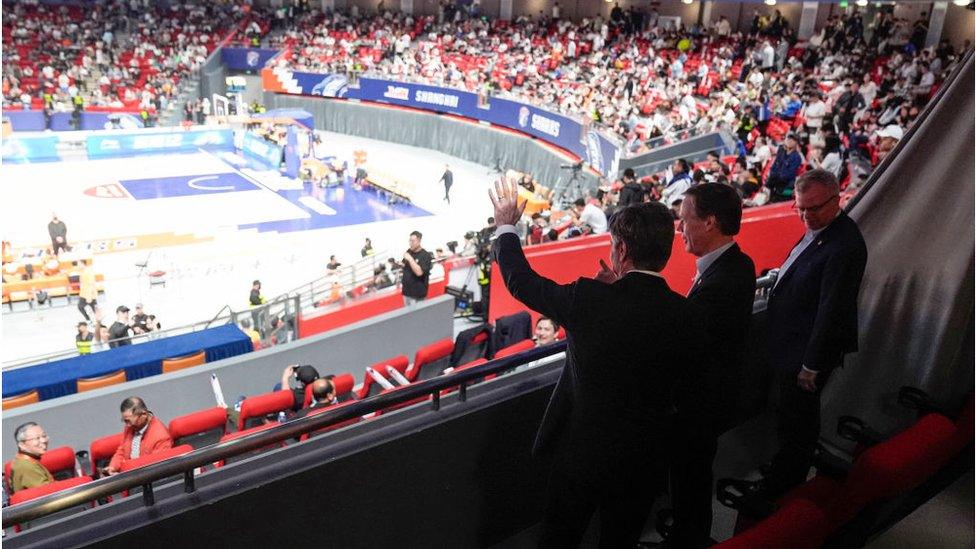
Mr Blinken attended a basketball game in Shanghai shortly after his arrival
On Wednesday Mr Blinken's plane carrying officials and reporters, including the BBC, wound its way from Anchorage, weaving a path over the Pacific well south of Russian territory and heading to the Chinese coastline north of Taiwan and the South China Sea - a route-map reminder of flashpoints.
Early last year a suspected Chinese spy balloon was floating in the same airspace above the frozen lakes of Alaska, triggering a full-blown international crisis and a nadir in US-China relations.
Just hours before Mr Blinken stepped on the tarmac in Shanghai, the US Senate passed a bill package giving a further $8bn of military aid to Taiwan, which President Biden has said the US would defend if attacked by China. The self-governed island, which counts the US as its biggest ally, is claimed by China.
The package also saw the senate voting to ban popular social media app TikTok if its Chinese parent company, ByteDance, did not divest it within nine months.
During her trip earlier this month, Ms Yellen had castigated China for its overcapacity issues resulting in cheap Chinese goods flooding the US market.
China has bristled at all these developments. It sees them as part of Washington's attempts to contain it economically and encircle it geo-politically. US officials counter that if China wants the threat of sanctions and tariffs lifted or US bilateral pacts eased with its regional adversaries, then Beijing should change its behaviour.
On Thursday Mr Blinken will warn foreign minister Wang Yi that China needs to curb the exports of machine tools and microchips to Russia. It says Moscow uses these for weapons in its war in Ukraine. Beijing has called that a "groundless accusation", seeing it as American hypocrisy days after Washington backed billions of dollars more lethal assistance for Kyiv.
Beijing also has its own warnings for Washington. Prior to Mr Blinken's arrival, it issued a long and robustly worded statement, external setting out what they expected from the talks.
While relations have started to stabilise, "the United States continues pushing forward the strategy of containing China, keeps adopting erroneous words and actions that interfere in China's internal affairs, smear China's image and undermine China's interests. China resolutely opposes such moves and has taken strong countermeasures", it said.
State media and Chinese academics have also echoed this message. "It seems like Blinken is here to issue an ultimatum to China. We will not give in to him and will not compromise on our core issues."," Li Haidong, a professor at the China Foreign Affairs University, told the Global Times.
Wang Yong from the School of International Relations at Peking University said that a "win-win situation" could be achieved in the relationship, but added that the US has the "wrong perception" of China and Washington needs to show more "goodwill".
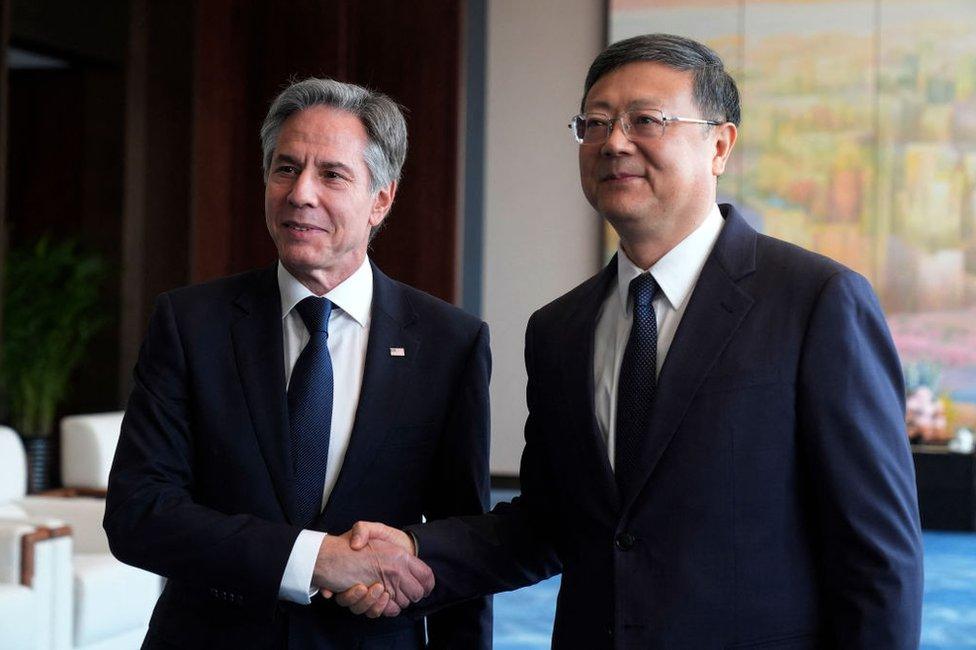
Mr Blinken met Shanghai party secretary Chen Jining on Thursday morning
One of the most pressing issues for Beijing going into talks this week would be Taiwan, according to Singapore-based expert Alfred Wu.
Mr Blinken is visiting China less than a month before the inauguration of William Lai, the pro-sovereignty president of Taiwan reviled by Beijing, and there are concerns it would lead to a spike in tensions in the Taiwan Strait as well as the larger South China Sea.
"China would want to emphasise the red lines. The two sides would want to lay out the groundwork to ensure there would not be any escalation especially in the lead-up to the 20 May inauguration," said Mr Wu, an associate professor at the Lee Kuan Yew School of Public Policy.
Even beyond that date, their fragile relationship will be further tested as the US heads towards another presidential election where both candidates are vying to be tough on China.
Back on the football field with the Beijing Cyclones, the thoughts are on both sports and politics.
Quarterback Mu Yang once commentated for Chinese fans during a Superbowl game in Los Angeles - which he described as a "huge honour" - and hopes for more exchanges between China and the US in the future.
"This is the biggest game in the world. I hope superstars can come from the National Football League and teach us how to play elite football - that would be good for us."
Henry Mu, meanwhile, appreciates how he is able to "culturally communicate through this game."
"Chinese people can play American sports and American people are very welcome to come here . It is great to know each other and to make friends.
"Peace, not war."
Related topics
- Published18 April 2024
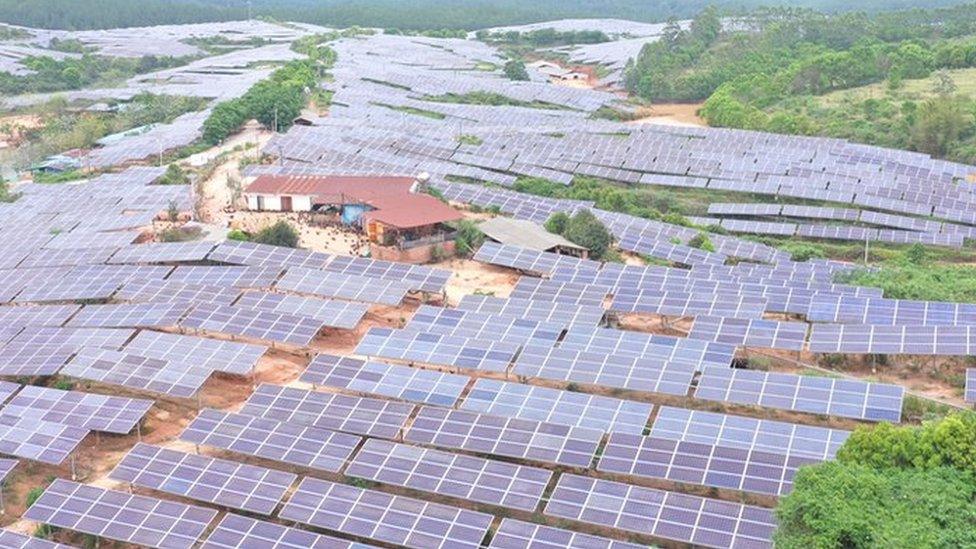
- Published19 February 2023
